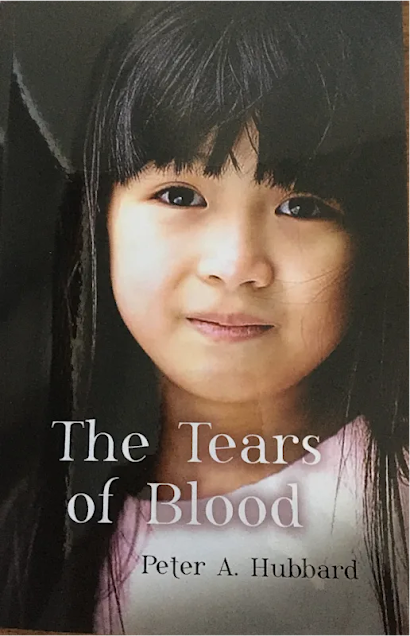The Tears of Blood
Click here to get The Tears of Blood on Dorrance Publishing Co.
Review of The Tears of Blood
The first attack decimates Vatican City and is followed by further atrocities causing lasting, catastrophic damage to the world’s economic, political, and religious foundations. Can Colonel PJ Anthony, the maverick lead investigator of Interpol, find the culprits before the planet is reduced to a nihilistic dystopia?
Hubbard writes with single-minded confidence and driving enthusiasm as the terrorists destroy and cripple systems, infrastructure, and beliefs. The narrative is remarkably imaginative, maintaining continuity and momentum in spite of a bewildering array of twists and turns.
It could be argued that it’s overwhelmingly far-fetched but, on several levels, the nucleus of the plot resonates neatly with a high degree of contemporary relevance. This lends the novel an unnerving sense of uncomfortable credibility and guarantees reader investment in the frantic hunt for the perpetrators.
As befits a book of this length, several plot strands and tangents eventually explain and unravel the reasoning behind the seemingly wanton destruction. Hubbard ensures there could be some sympathies with the terrorists’ motives, and elements of their justification raise subliminal yet profoundly interesting arguments.
The story is told from various perspectives both first and third person, although the majority point of view is given by Captain Jessica Riley of Interpol. She is tough, practical, and remains deceptively unassuming despite the flickers of vulnerability in her relationship with Colonel Anthony.
It is through her narrative that the reader is introduced to the Colonel. They have a shared working history, and there are also tantalizing hints of a possible previous romantic entanglement which creates an intriguing frisson of chemistry between the two.
Colonel Anthony is a rugged, battle-scarred, hard-bitten agent in the best tradition of lone-wolf ex-military operatives. Hubbard ensures that he remains somewhat enigmatic but he is immensely readable and capably carries the action forward.
All the characters are acutely observed. Even with minor players, care has been taken to give subtle yet defining details to establish their individuality, making them well-rounded and convincing.
The elderly Jesuit Priest, Brother Gómez, is developed with the right amount of compelling intensity without becoming stereotypical. Lt. Colonel Indigo Kashasini was charmingly engaging, with his fussing disguising a razor-sharp mind.
Arie Rosenberg, the former head of the Israeli Secret Service, was nicely avuncular and very likable. Further, the reliance on strong, highly intelligent, female personalities from all walks of life is refreshing in a book of this genre.
Geographically, the story hurls the reader around multitudinous landscapes, showcasing a meticulous level of research and knowledge into the differing environments, languages, and cultures. The scenes in Venice are particularly atmospheric, as are those set in the hostile terrain of the Middle Eastern desert.
Similarly, the standard of detail in terms of high-level espionage, military, and technological hardware and tactics is absorbingly comprehensive despite being fairly specialized. However, Hubbard manages to make it thoroughly accessible and supremely interesting without becoming confusing.
Notwithstanding, it could be debated that a more ruthless edit would have been advantageous. Areas of the plot may have benefitted from streamlining to have made them more impactful. There are also an unfortunate number of typographical errors and an over-use of exclamation marks. Although humor can be found in the bleakest of circumstances, the occasional levity felt a touch misplaced.
The first book in The Tears of Blood trilogy is a gripping, high-octane page-turner that is rewarding, entertaining, and thought-provoking to read. Boasting an incredibly ambitious plotline, impeccable research, and a diverse, interesting cast, Peter A. Hubbard delivers on his promise to take the reader into an unprecedented world of absolute terror.


No comments:
Post a Comment